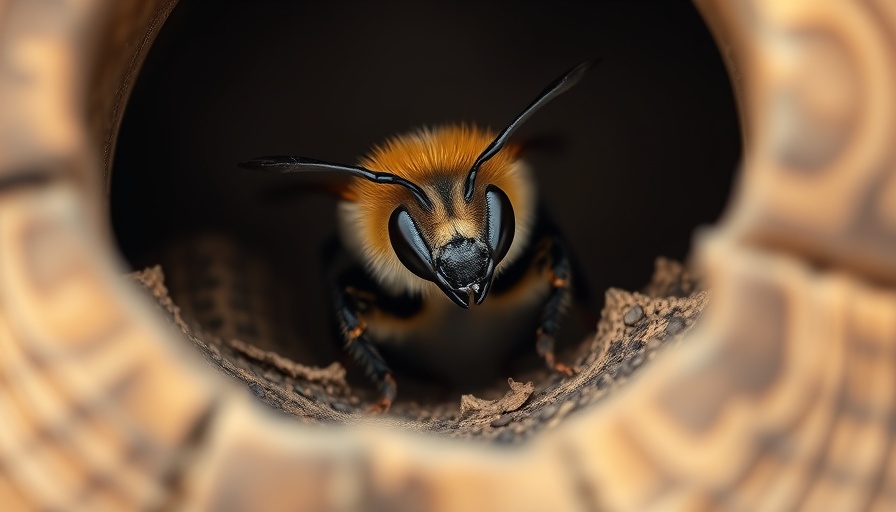
Why Bee Hotels Matter in a Changing Climate
As wildfires become more frequent due to climate change, the impact on our ecosystems and pollinator populations is alarming. Native bees, which play a crucial role in pollinating various plants, are finding it increasingly difficult to survive in the wake of these disasters. Recent research led by Dr. Kit Prendergast from the University of Southern Queensland reveals a promising solution: bee hotels.
Understanding Bee Hotels
Bee hotels are ingenious structures designed to provide shelter for cavity-nesting bees, offering safe locations for them to lay eggs and shelter from the elements. With many native bee populations declining, these artificial nests are not just garden decorations but essential for sustaining bee life, particularly in fire-affected areas.
The Impact of Wildfires on Pollinators
Wildfires have far-reaching effects on ecosystems, including the health of pollinator populations. The study highlights that while recovery efforts often focus on plant life, the pollinators crucial for these ecosystems' regeneration receive little attention. Supporting native bees is vital for the rebound of flowering plants, making bee hotels a strategic initiative for recovery post-wildfire.
A Journey into the Research
Dr. Prendergast’s study had an ambitious aim: to assess the effectiveness of bee hotels in boosting native bee populations across five sites in Western Australia’s Jarrah forests, a region ravaged during the intense bushfire season.
The research team constructed 1,000 bee hotels using both wooden blocks and bamboo piping, placed strategically to monitor the activity of native bees as compared to honey bees, which tend to dominate in post-burn landscapes.
Results Show Promise for Pollinator Recovery
The outcome was a resounding endorsement for bee hotels. Every single hotel was occupied, providing nesting opportunities for over 800 native bees. The environment surrounding the bee hotels showed significantly higher bee activity compared to control sites lacking these accommodations.
However, there was a caveat: native bees were less active in areas with increased honey bee activity. This competition for limited resources such as nectar and pollen highlights the delicate balance within ecosystems, especially in post-fire scenarios.
Taking Action: What Can You Do?
For those who are eco-conscious and want to contribute to the recovery of pollinator populations, installing bee hotels at home can make a significant difference. They are relatively easy to set up and can foster biodiversity right in your backyard.
Not only do bee hotels help combat the decline of native bees, but they also provide an educational opportunity for adults and children alike. Educating ourselves about sustainable practices and the role of pollinators in our ecosystem contributes to a greater understanding of our environment and fosters a deeper appreciation for nature.
Connecting with Nature: The Bigger Picture
As we strive for a sustainable future, every small action counts. By understanding the importance of pollinators and making conscious choices, we contribute to the larger narrative of recovery and resilience against climatic adversities. Embracing eco-friendly practices can lead us not just to support wildlife, but to cultivate a healthier planet for future generations.
Your Role in the Recovery Narrative
As climate change threatens the stability of our ecosystems, the responsibility falls on us to support biodiversity. Installing a bee hotel might seem like a small gesture, but it’s a step towards larger change. Let’s take initiative and plant the seeds for recovery, ensuring native pollinators have the thriving environment they need to prosper.
So, why not start today? You can be a part of the movement to safeguard our essential pollinators and contribute to a healthier, more vibrant ecosystem. Consider building or purchasing a bee hotel, learning more about native bees, and sharing this knowledge with others.
 Add Row
Add Row  Add
Add 




Write A Comment